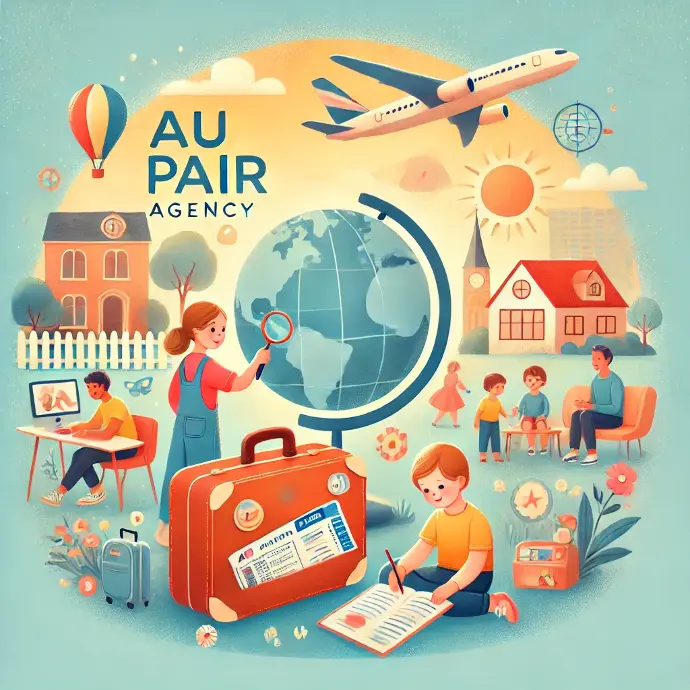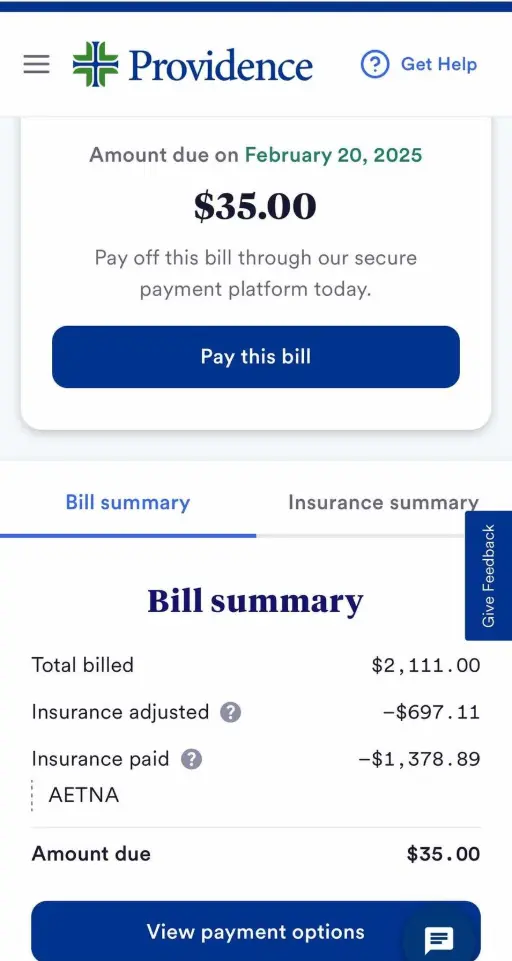In this article, we will cover several topics. Here’s the table of contents: :
Requirements to Become an Au Pair
- General Requirements: Age, Education Level, Language Skills, Experience with Children.
- Recommended Qualities: Flexibility, Adaptability, Patience, Responsibility
Find a host family
- Options for Finding a Host Family: Specialized Websites (e.g., AuPairWorld, Cultural Care), Agencies, Fees, Personal Recommendations, and Costs.
- Selection Criteria: Regions, Family Habits, Cultural Compatibility, Values, Expectations.
- Safety Tips: Verifying the Legitimacy of Families, Checking Reviews, Conducting Interviews.
Administrative Procedures and Visa Application
- Au Pair Visa in France: J-1 for the United States
- Visa Application Process: Required Documents, Processing Times, Fees.
- Insurance and Other Formalities: Social Security, Health Insurance, and Liability Insurance.
Interview with Host Families
- Preparing for the Interview: Common Questions, Topics to Discuss (e.g., schedules, tasks, house rules).
- Tips for Making a Good Impression: Dress Appropriately, Show Interest, Ask Questions.
- Key Points to Check: Specific Tasks, Days Off, Compensation, Privacy Matters.
Bonus
- Packing Preparation: What to Pack Before You Leave?
- Mental Preparation: What to Expect in Practice?
Becoming an au pair is much more than just a job abroad: it’s a complete immersion into the daily life of a new culture, an opportunity to learn a language, and to build unique bonds with a host family. An au pair is a young person who goes to live in another country to care for children, usually in exchange for accommodation, food, and a bit of pocket money. This program is often aimed at young adults looking to travel, broaden their horizons, and develop their skills in a familiar and secure environment.
The benefits of becoming an au pair are numerous. This experience allows you to discover a culture from the inside, learn or improve a foreign language, and develop valuable qualities such as independence, adaptability, and communication skills. Whether you want to live in a big city or the countryside, being an au pair offers a stepping stone for personal and professional growth, while providing valuable help to host families.
Requirements to Become an Au Pair
- General Requirements: Age, Education Level, Language Skills, Experience with Children
- Recommended Qualities: Flexibility, Adaptability, Patience, Responsibility
General requirements
To become an au pair, there are specific criteria to meet. First, you must be at least 18 years old and no older than 26 years old before entering the country. (I recommend going abroad starting at 21 years old. Before that age, it’s difficult to fully enjoy outings: you won’t be able to enter nightclubs or access bars, even just to have a soda with friends. Additionally, renting a car will often be impossible.) You should also have at least a B1 language level in the language of the host country, and hold a high school diploma. Many agencies also require over 200 hours of experience with children, such as working in a recreation center, assisting in a daycare, babysitting, or supervising activities. It’s important that this experience is verifiable, with reference letters or recommendations to back it up.
For those who wish to work with children under two years old, there is a qualification called **"Infant Care Status"**. Nearly half of the families seeking an au pair have young children, so having this qualification significantly increases the chances of being placed quickly. To obtain this status, you must be at least 19 years old and have 200 hours of experience with babies.
Caring for children with specific needs, such as physical or mental disabilities, also requires specialized skills and sometimes additional training. Experience in this area is an asset, as it broadens placement opportunities with families looking for specific assistance.
Key Skills for the Au Pair Program:
Beyond specific experience in childcare, the au pair role requires additional skills to adapt to the daily needs of the host family. This includes supporting children in their activities, respecting family rules and routines, and managing one's time effectively.
Some skills are developed with hands-on experience, such as: :
-Establishing and maintaining a structured routine
- Offering educational and fun activities tailored to each child
- Managing unforeseen situations calmly
- Demonstrating empathy and understanding of the children’s emotional needs
- Communicating effectively with both children and parents
These essential skills are the key to thriving in the role of an au pair and to providing families with reliable and high-quality support.

Find a host family
- Options for Finding a Host Family: Specialized Websites (e.g., AuPairWorld, Cultural Care), Agencies, Fees, Personal Recommendations, and Costs.
- Selection Criteria: Regions, Family Habits, Cultural Compatibility, Values, Expectations.
- Safety Tips: Verifying the Legitimacy of Families, Checking Reviews, Conducting Interviews.
Site to find a family
It's important to know that in the United States, going through an agency is mandatory to become an au pair. Without an agency, the program is considered illegal, as a sponsor and a visa are required and it's the agency that facilitates the process of obtaining these documents..
Many agencies specialize in au pair programs for the United States. Here is a list of the main accredited agencies that offer programs to become an au pair in the U.S :
- Cultural Care Au Pair – One of the most popular agencies, offering training, ongoing support, and continuous assistance.
- Au Pair in America (AIFS)– One of the oldest agencies, offering programs for young adults aged 18 to 26, with options to extend the stay.
- EurAupair– A non-profit organization that promotes cultural exchange for enriching experiences.
- Aupaircare–An agency specialized in placing au pairs, offering matchmaking services with host families in the United States, while assisting with the visa process and providing support throughout the program..
These agencies are officially accredited by the U.S. Department of State, which is essential for securing a J-1 visa for the United States and ensuring proper support in case of any issues. Each agency has its own features, so it's recommended to compare them to find the one that best suits your needs and expectations.
The costs
The costs to become an au pair in the United States vary depending on the agency and the services offered, but here is an estimate of the fees charged by major agencies (which may fluctuate based on the options and agency you choose):
1. Culturalcare
- Program fees: around €1,799 (at the time I registered in 2023).
- Cancellation insurance fee: €80.
- You only pay once you find a family you match with.
- Visa fee of €180, which is not included in the agency price.
- Online training school for 3 days at New York City's time zone (No in-person days in NYC since COVID-2019).
- Au pairs earn a minimum of $195.75 per week (most families round it up to $200).
- Positive: It's the largest of the agencies, and in case of a rematch, you will always find a family.
- Total: approximately €1,959.
- Program fees : €700/ €800
- You only pay once you find a family you match with.
- Visa fee of €180, which is not included in the agency price.
- Online training school + 3 days in New York City before meeting the families, included in the price, all expenses covered.
- Day 1: First aid review
- Day 2 morning: review of rules regarding children (e.g., no hitting children).
- Day 2 afternoon: visit of New York
- Day 3: departure to the host families.
- Au pairs earn a minimum of $195.75 per week (most families round it up to $200)
- Total : approximately €880/ €980
3. Euraupair (Organisme PIE)
- Program fees : €700 /€800 (You can apply for a scholarship and pay only €30).
- You pay before finding a family; if you don't find one, they will refund you.
- A week in New York City before meeting the families, included in the price, all expenses covered.
- Au pair life course + NYC tour + gift cards, t-shirts.
- Visa fee of €180, which is not included in the agency price.
- Au pairs earn a minimum of $195.75 per week (most families round it up to $200)
- The negative: fewer family options, and in case of a rematch, it can be complicated.
- Total : environ €930
4. Aupaircare
- Frais de programme: €1090
- You only pay once you find a family you match with.
- Cancellation insurance fee €100
- Online training school + 3 days in New York City before meeting the families, included in the price, all expenses covered.
- Visa fee of €180, which is not included in the agency price.
- Au pairs earn a minimum of $215 per week.
- Total : environ €1370
It’s recommended to check for any additional fees related to insurance coverage or training options. Also, you only pay the agency once you’ve matched with a host family. If no match is made, there is no payment required beforehand. As far as I know, this is the case with all agencies.
---
Personally, I chose to go with the Cultural Care (CC) agency, and my experience was positive, even though there are sometimes negative reviews about them. CC is indeed more expensive than some other agencies, but this is explained: in case of a rematch (changing host families), Cultural Care covers the return flight to the home country if you don’t find a new host family. On the other hand, other agencies like Au Pair in America or Au Pair Care do not cover the return ticket, meaning you would have to bear this cost if you don't find a new family.
Regarding health insurance, all agencies offer similar coverage. With Cultural Care, the insurance is provided by ERIKA. From my experience, a doctor's consultation costs around $90, of which you only have to pay $35. Additionally, prescribed antibiotics are reimbursed at 100%. In case of a life-threatening emergency requiring a visit to the ER, Cultural Care fully covers the costs. However, if you need an ambulance, be aware that it costs about $500, and it's not guaranteed that the insurance will cover this amount. In that case, if possible, find someone to accompany you to the ER !
---

A small example from my own experience with ERIKA insurance: I had to go to the ER in Alaska because of a stomach ulcer. The bill was over $2,000, but thanks to the insurance, I only paid $35. A big thank you to Cultural Care's insurance!

Cultural Care (CC) Registration :
---
I’m going to tell you about my experience with Cultural Care (CC). First, after registering, a counselor contacts us a few days or weeks later to ask questions such as: do we smoke, drink, have tattoos, or have a criminal record, etc. These questions are quite similar to those in the initial registration form.
Next, we need to complete our online profile. This includes creating three short videos in English, addressed to the families who will view our profile. For these videos (no longer than 30 seconds each), it is essential to be cheerful and speak clearly! We also need to write texts for our introduction, a cover letter, and captions for the photos in English. All the information we fill out for the family must be in English! We also need to upload certain documents, such as our high school diploma, driver’s license, and ID card. CC verifies each document and either approves or rejects them.
Once the profile is completed and validated by CC, we have a video interview in English to assess our language level (I had to take it twice because my initial level was quite low!). The questions are basic, such as: why do I want to become an au pair, my experience with children, what I enjoy doing with them, how I spend my free time, and what my ideal family looks like, etc.
Small tip for your au pair profile: To maximize your chances of finding a family, take the time to create a clear, well-structured, and attractive profile. Here are some tips:
•Add photos with children: this is what families are looking for, they want to see you in action with little ones.
• Include varied photos: one or two with your family, one of you alone, but not five selfies! Keep in mind, this is not Tinder, haha.
• Stay authentic: show who you are, your passions, and what motivates you to become an au pair. Families love getting to know your personality through your photos and description. Good luck to everyone searching for their family, and remember: the right match always comes with a little patience !
---
Criteria for choosing the right family :
When choosing a host family, several criteria should be considered to ensure a positive experience. The region is an important aspect: do you prefer to live in a city, in the countryside, or in a specific area? Each environment offers a different experience. Then, it's essential to consider the family’s habits: their daily routine, schedules, and how they manage household tasks. Cultural compatibility is also a key factor. For example, it's important to know if you are comfortable with the culture, customs, and language of the country. Additionally, make sure that your values align with those of the family, particularly in terms of child-rearing, house rules, and expectations of your role. Be sure to clarify their expectations before committing, whether it’s regarding household chores, work hours, or integration into the family.
Tips to ensure safety
Safety is crucial when choosing a host family. Start by verifying the family’s legitimacy through recognized agencies or reliable platforms. Reviews from other au pairs can also be very helpful in assessing the family's reliability. Make sure the feedback is positive and that there are no recurring issues reported. Another important tip is to have interviews with the family, preferably via video call, to get to know them better and ask questions about the practical aspects of daily life, as well as their lifestyle. Don’t hesitate to ask about their expectations, hobbies, eating habits, and what you can do during your days off. These conversations will help you better assess whether this family matches what you are looking for and if you feel comfortable with them.

Administrative Procedures and Visa Application
- Au Pair Visa in France: J-1 for the United States
- Visa Application Process: Required Documents, Processing Times, Fees
- Insurance and Other Formalities: Social Security, Health Insurance, and Liability Insurance.
When you go to the United States as an au pair from France, the first step is to obtain the J-1 visa, specifically designed for participants in the au pair program. This visa allows you to live and work with a host family in the United States for a year, with the possibility of extending the experience for an additional year. The visa application process can be quite long and requires several essential documents, such as a valid passport, confirmation of placement with the host family, and a letter from the agency you’ve chosen. In general, the process can take between 1 and 3 months, depending on appointment scheduling and processing times. In addition to the visa, you will need to pay application fees, which vary depending on the type of visa and the administrative fees of the embassy. I paid about 180 EUR for the visa.
Attention: if you do not complete your full year, whether due to a rematch without finding a new family or because the experience was not suitable for you, you will not be able to reapply for a J-1 visa with any agency. This means that you will no longer be able to be an au pair in the United States with a J-1 visa.
Regarding insurance, the agency you go through to the United States, such as Cultural Care or another recognized agency, will generally include health insurance as part of your program. This coverage typically includes basic medical care and emergencies, but it’s important to carefully check what is covered, especially consultations, treatments, and medications. Additionally, you will need to check the specifics of your social security coverage during your stay. If you are an au pair in the United States, you will not be covered by the French healthcare system, which is why having full coverage for the entire duration of your stay is essential. It is also recommended to subscribe to specific liability insurance to be protected in case of incidents involving third parties, such as accidents or property damage. It is also crucial to request an international driver’s permit. Make sure to do this well in advance, ideally 4 to 5 months before your departure. In my case, I applied for it in June, but it didn’t arrive until October, a week after I left for the United States. Luckily, my parents were able to bring it to me at Christmas..
---
The longest part of the process is getting an appointment. I was lucky in my case: I managed to get an appointment for the date I wanted. I was leaving on October 7, 2023, and I booked an appointment at the embassy for August 2023, which gave me a month to prepare. However, I know that some people, around the same time, had to check the embassy’s website every day in hopes of securing an appointment quickly. I’m not sure how things are going now, but I recommend booking an appointment well in advance, about a month ahead, to make sure you get a spot.
Here's the translation: Once at the embassy, I was lucky again. The man who received me asked me questions in English, but since I didn’t speak English, he kindly asked them in French. Cultural Care (CC) mentions that it’s possible to not get your visa if you can’t respond in English at the embassy, but I’m not sure if that’s true...
---
Interview with Host Families
- Preparing for the Interview: Common Questions, Topics to Discuss (e.g., schedules, tasks, house rules)
- Tips for Making a Good Impression: Dress Appropriately, Show Interest, Ask Questions
- Key Points to Check: Specific Tasks, Days Off, Compensation, Privacy Matters
The interview with a host family is a crucial step in the process of becoming an au pair. It’s essential to prepare well for this meeting to ensure good rapport and avoid misunderstandings later on. During the interview, some common questions may come up, such as working hours, the specific tasks you'll be doing (childcare, housework, homework help), and house rules (for example, meal times, use of common areas, etc.). It’s also important to ask about compensation, days off, and expectations regarding participation in family life. This will help you determine if the living conditions match your expectations and lifestyle. One important point to consider: if you don’t live in a big city like San Francisco, New York, or Chicago, having a car is essential, especially if the family doesn’t live downtown. In the U.S., almost everything is done by car! Even if the family offers to pay for your Uber rides, cover public transportation, or share a car with you, this can become complicated. Families generally cover transportation costs when you're with the children, but during your free time, it's less common. Additionally, public transportation can be long and inconvenient (a 15-minute drive might take more than an hour by bus), and sharing a car means you might not have one available when you're off-duty. The ideal situation is to have your own car to move around easily.
To make a good impression, it is crucial to dress neatly and professionally, even if the interview is conducted via video. Show that you are genuinely interested in the family and the culture of the country by asking relevant questions about their daily life, lifestyle, and how you will be integrated into their family. For example, ask how they view the balance between work and leisure, and how you can participate in family activities. It is also advisable to check some important points such as the specific tasks you will need to perform, to avoid any ambiguity during your stay, and to clarify your days off (2 weeks maximum in the USA) and how they will be organized. Don’t forget to inquire about your privacy in the house (for example, intimacy hours, personal space) to ensure you will be comfortable in your environment.
Normally, you should have at least two interviews with the family. The first interview allows you to get to know the family and ask your essential questions, those that will help you weigh the pros and cons. You will primarily interact with the parents to better understand their expectations, rules, and lifestyle. If everything goes well, you will have a second interview, where you will also meet the children. This will be an opportunity to ask questions suited to the children, such as what they like to do, their favorite color or movie, what they enjoy eating, etc. Sometimes, some au pairs have a third interview, which serves to ask the final questions, clarify any remaining doubts, and make the final decision to ensure the right choice.
Here’s the translation: Here are 20 typical questions you can ask during your first interview with a host family to better understand their expectations and the conditions of your stay. These questions will help you better understand the host family's expectations, as well as the working and integration conditions, to ensure everything is clear before your departure.
On tasks and responsibilities
1. Quelles seront mes principales responsabilités en tant qu’au pair au quotidien ? (What will my main responsibilities be on a daily basis as an au pair?)
2. Est-ce que je serai responsable de la gestion des devoirs de vos enfants ? (Will I be responsible for helping the children with their homework?)
3. Quelle est la répartition des tâches ménagères entre les membres de la famille et l’au pair ? (How are household chores divided between family members and the au pair?)
4. Quelle est la routine quotidienne de vos enfants ? (What is your children’s daily routine?)
5. Est-ce que je serai amené(e) à préparer les repas pour les enfants ? Si oui, quel type de repas ? (Will I be expected to prepare meals for the children? If so, what type of meals?)
6. Quelle est la fréquence des sorties ou activités spéciales avec les enfants ? (How often do you have special outings or activities with the children?)
7. Quelles sont les règles concernant les écrans (télévision, jeux vidéo, etc.) pour les enfants ? (What are the rules regarding screen time (TV, video games, etc.) for the children?)
8. Est-ce qu’il y a des restrictions alimentaires à respecter pour les enfants ? (Are there any dietary restrictions I need to follow for the children?)
On schedules and holidays
9. Quelles sont mes heures de travail quotidiennes et hebdomadaires ? (What will my daily and weekly working hours be?)
10. Combien de jours de congé par mois seront à ma disposition ? (How many days off will I have per month?)
11. Y a-t-il des jours fériés où je pourrais être libre ? (Are there public holidays when I can be free?)
12. Comment gérez-vous les jours où je devrais travailler plus longtemps ou en soirée ? (How do you manage days when I may need to work longer hours or in the evening?)
13. Puis-je prendre des congés pendant les vacances scolaires ou est-ce une période de travail plus intense ? (Can I take time off during school holidays, or is that a busier time?)
On family life and integration
14. Comment décririez-vous votre mode de vie et votre approche de l’éducation ? (How would you describe your lifestyle and approach to parenting?)
15. Quelle place ai-je dans les activités familiales pendant mon temps libre ? (How involved will I be in family activities during my time off?)
16. Comment fonctionnent les repas en famille ? Est-ce que nous mangeons ensemble régulièrement ? (How do family meals work? Do we eat together regularly?)
17. Est-ce que vous prévoyez des activités ou des sorties familiales auxquelles je pourrais participer ? (Will there be any family activities or outings that I can participate in?)
18. Quelle est votre approche en matière de discipline et de gestion des conflits avec les enfants ? (What is your approach to discipline and managing conflicts with the children?)
19. Quelle est la politique de la famille concernant l’utilisation de mon temps libre et les déplacements à l’extérieur ? (What is your family’s policy regarding the use of my free time and going out?)
20. Y a-t-il des règles concernant l’intimité ou l’espace personnel dans la maison que je devrais connaître ? (Are there any rules about privacy or personal space in the house that I should be aware of?)
Here are 10 questions for the second interview with the children. These questions will help you get to know the children's likes and interests and create a more personal connection with them.
1. Quelle est ta couleur préférée ? (What is your favorite color?)
2. Quel est ton film préféré ? (What is your favorite movie?)
3. Qu’est-ce que tu aimes faire pendant ton temps libre ? (What do you like to do in your free time?)
4. Quel est ton plat préféré ? (What is your favorite food?)
5. As-tu un animal préféré ? (Do you have a favorite animal?)
6. Quelle est ta matière préférée à l'école ? (What is your favorite subject at school?)
7. Si tu pouvais voyager n’importe où, où irais-tu ? (If you could travel anywhere, where would you go?)
8. Quel est ton super-héros ou personnage préféré ? (Who is your favorite superhero or character?)
9. Est-ce que tu aimes les activités manuelles ou créatives, comme le dessin ou les bricolages ? (Do you like creative activities, like drawing or crafting?)
10. Est-ce que tu as une chanson préférée ? (Do you have a favorite song?)
---
For my first host family, I had a real crush as soon as I discovered their profile online. I already knew I would go with them, even before talking to them. Choosing your host family is primarily a matter of feeling. If you feel comfortable right from the first exchanges, it's often a good sign. I had two interviews with them: the first with the parents, where we discussed my background, my motivations to become an au pair, my experiences with children, and my studies. On my side, I asked them questions about their way of functioning, the tasks I would have, what they liked to do as a family, and their expectations from the au pair. Then, during the second interview, I met the children and asked lighter questions, like their favorite superheroes, colors, or dishes. The connection was there, and we matched.
Before meeting this family, I had a video interview with another family, but nothing came of it, despite the 5 connections on my profile. The process didn’t go anywhere, which is not uncommon. Sometimes, families send you a connection request, you respond and send a message, but then you don’t hear anything from them again.
For my extension, I had two video interviews, one of which was with my current family. In total, I had 5 or 6 connections. Like with my first family, the first interview was with the parents to talk about their way of functioning and the house rules. The second interview was with the children, which allowed me to better understand their personalities and determine if I could see myself taking care of them.
When I was looking for my first family, I didn't have specific criteria, as I wasn't yet informed about the role of an au pair and I just let myself be guided by chance. So, I couldn't really be disappointed. However, for my second family, I had clearer criteria, as I had more experience and knew exactly what I wanted and what I didn't want.
---

Bonus :
Packing Preparation: What to Pack Before You Leave
Many future au pairs ask themselves this question, and I myself was a bit lost about what to pack. I brought a lot of beauty products, thinking they would be impossible to find in the United States, but rest assured, you can find almost everything there! Unless you have a specific product or a French brand like "Yves Rocher," there's no need to overload your suitcase with hygiene products.
For clothes, pack only enough for a week, or maybe a week and a half, as you’ll be able to wash them regularly. Also, make sure to bring clothes for all seasons. Even if you're going to a warm place like Arizona, you might end up traveling to colder destinations, such as a ski resort, during the winter with your host family.
Here is a list I recommend:
- For bottoms: 3 jeans, 4 sweatpants, 5 leggings, 4 shorts.
- For tops: 8 short-sleeved t-shirts, 5 long-sleeved t-shirts, 8 tank tops, 7 sweaters or sweatshirts.
- Jackets: 1 or 2 coats.
- Special outfits: 2 or 3 evening outfits.
- Underwear: Enough for one week or a week and a half.
Traveling light and practical is the key to being prepared for any situation!
Definitely prioritize comfortable outfits! Here, everyone wears leggings or sweatpants, and when working from home, it’s common to just go for something casual rather than dressing formally.
Mental Preparation: What to Expect in Practice?
It is important to understand that what we see on social media often only reflects the positive side of the experience. Upon arrival, you might experience a culture shock: taking care of children all day, constantly hearing them, and having to focus on a foreign language can be very exhausting. You will also have to manage jet lag, and it’s possible to feel homesick, especially if you’re tired and miss your loved ones.
If the first few weeks are tough, don't worry, it’s completely normal. Don’t give up! Go out, meet friends, do activities on your own, go to the gym. I promise you it will get better with time. This adventure is amazing, so hang in there and enjoy it to the fullest!
If you have any other questions on this topic, feel free to contact me via message on Instagram or by email! I’ll be happy to answer you.



Everything You Need to Know About Becoming an Au Pair